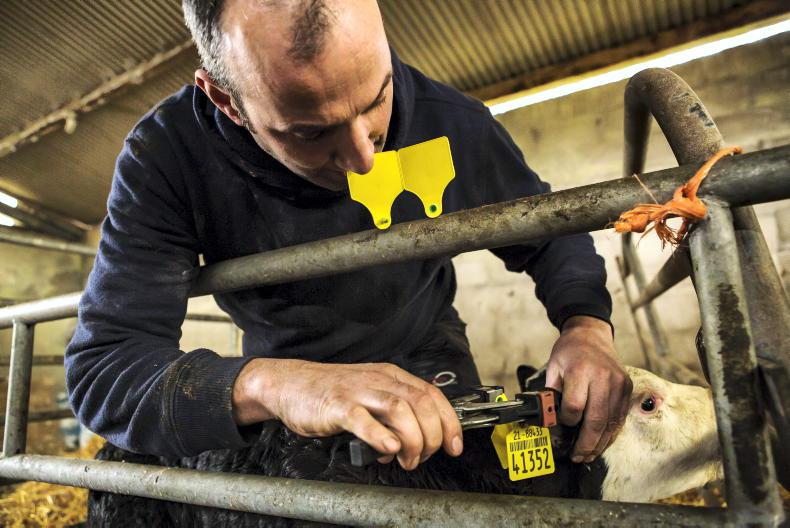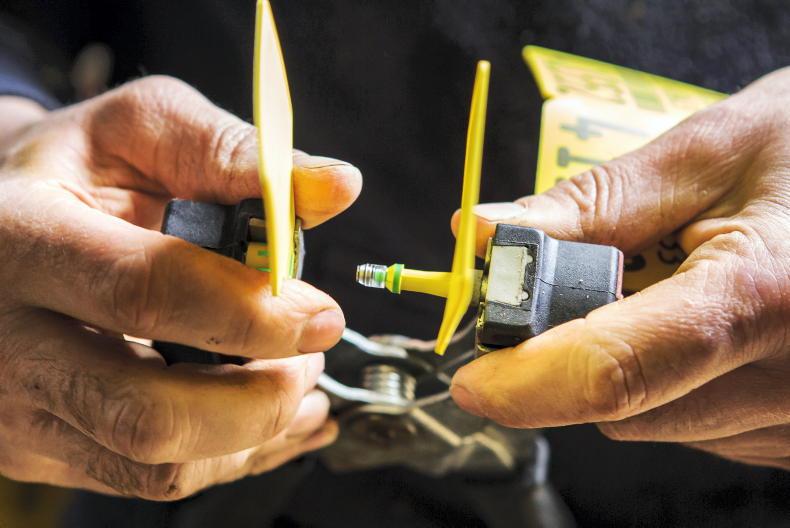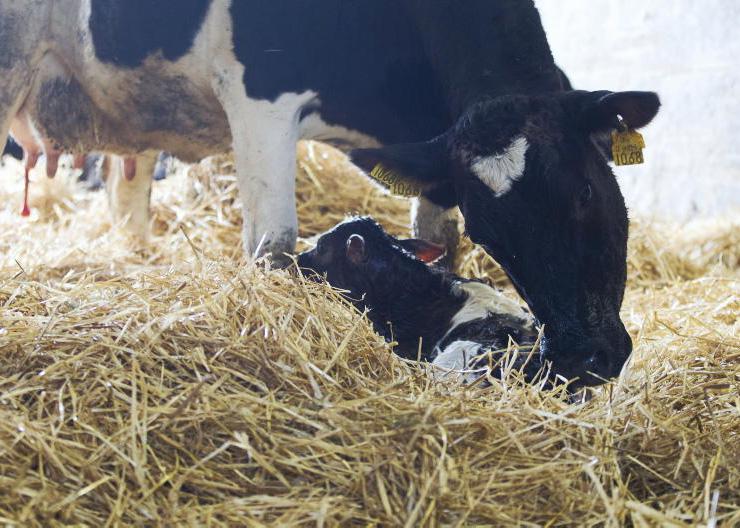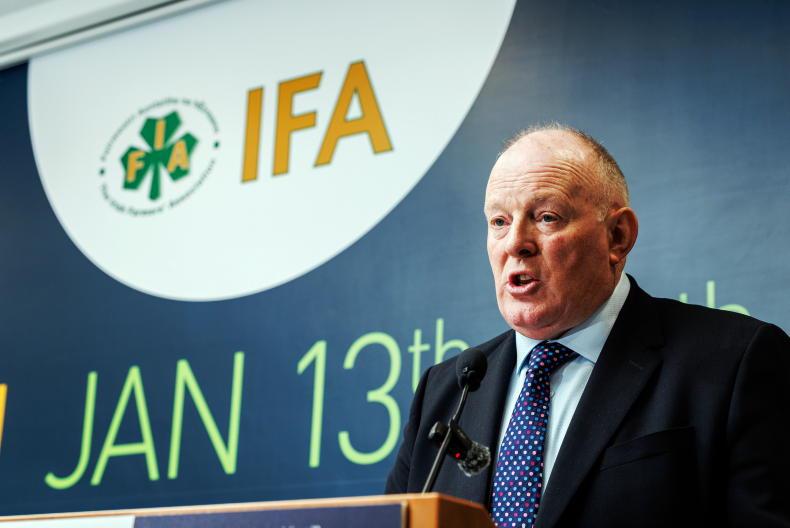Farmers have to see the benefits of reaching Ireland’s BVD targets, according to the Irish Farmers' Association (IFA).
IFA animal health chair TJ Maher said farmers have invested directly over €100m in the BVD programme since it commenced voluntarily in 2012, before becoming compulsory in 2013, and have to now see the benefit.
On Thursday, the Irish Farmers Journal revealed that Ireland has moved a step closer to becoming BVD-free.
The Department of Agriculture submitted the national plan for BVD eradication to the European Commission and it is understood that approval has recently been granted.
This is considered to be an important stage post on the way to seeking and obtaining BVD-free status for the country and Minister for Agriculture Charlie McConalogue could then move towards ending the tissue tag testing regime.
‘Significant milestone’
Maher said the actions of suckler and dairy farmers and their investments in the BVD programme have achieved this “significant milestone” in having the programme approved by the Commission under the EU Animal Health Law.
However, he said targets have to be met by the end of this year, which the BVD programme is very much on track to achieve.
“There will then be an acceptance process from the EU’s perspective which will likely run to a number of months before official free status is granted,” he said.
Programme for 2023
The IFA animal health chair said that now, the “substantive issue is the type of testing programme that will apply in 2023 in the first instance”.
“It’s likely the majority of calves will be born before free status is granted, if the targets are met by the end of this year,” he warned.
He also noted the issue of vaccination being prohibited and only allowed in exceptional circumstances when free status is granted, which he said means the proof of freedom testing approach that will come into play must also provide an effective case detection tool.
Next steps
TJ Maher said the IFA has “clearly set out” to Animal Health Ireland (AHI) what the next steps in this process must be.
“The BVD programme, and in particular the conclusion of the programme, will be the benchmark with which AHI’s credibility will be measured by farmers.”
Maher said failure to conclude the BVD programme in a satisfactory way for farmers will have long-term reputational damage for AHI with farmers and it is important this is avoided.
Prior to the introduction of BVD testing and controls on cattle farms in 2012, the disease was costing Irish farmers over €100m annually, equal to the total cost of the control programme over its lifespan to date.
Read more
Ireland steps towards BVD-free status
Farmers have to see the benefits of reaching Ireland’s BVD targets, according to the Irish Farmers' Association (IFA).
IFA animal health chair TJ Maher said farmers have invested directly over €100m in the BVD programme since it commenced voluntarily in 2012, before becoming compulsory in 2013, and have to now see the benefit.
On Thursday, the Irish Farmers Journal revealed that Ireland has moved a step closer to becoming BVD-free.
The Department of Agriculture submitted the national plan for BVD eradication to the European Commission and it is understood that approval has recently been granted.
This is considered to be an important stage post on the way to seeking and obtaining BVD-free status for the country and Minister for Agriculture Charlie McConalogue could then move towards ending the tissue tag testing regime.
‘Significant milestone’
Maher said the actions of suckler and dairy farmers and their investments in the BVD programme have achieved this “significant milestone” in having the programme approved by the Commission under the EU Animal Health Law.
However, he said targets have to be met by the end of this year, which the BVD programme is very much on track to achieve.
“There will then be an acceptance process from the EU’s perspective which will likely run to a number of months before official free status is granted,” he said.
Programme for 2023
The IFA animal health chair said that now, the “substantive issue is the type of testing programme that will apply in 2023 in the first instance”.
“It’s likely the majority of calves will be born before free status is granted, if the targets are met by the end of this year,” he warned.
He also noted the issue of vaccination being prohibited and only allowed in exceptional circumstances when free status is granted, which he said means the proof of freedom testing approach that will come into play must also provide an effective case detection tool.
Next steps
TJ Maher said the IFA has “clearly set out” to Animal Health Ireland (AHI) what the next steps in this process must be.
“The BVD programme, and in particular the conclusion of the programme, will be the benchmark with which AHI’s credibility will be measured by farmers.”
Maher said failure to conclude the BVD programme in a satisfactory way for farmers will have long-term reputational damage for AHI with farmers and it is important this is avoided.
Prior to the introduction of BVD testing and controls on cattle farms in 2012, the disease was costing Irish farmers over €100m annually, equal to the total cost of the control programme over its lifespan to date.
Read more
Ireland steps towards BVD-free status










SHARING OPTIONS